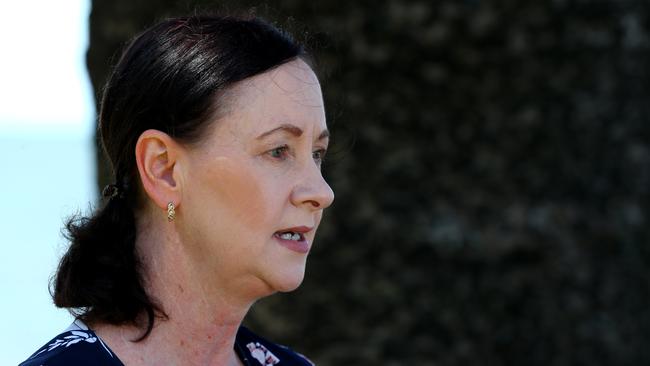Queensland clinic closures give rise to horror tales of ‘at-home’ abortions
Desperate women are still attempting ‘at-home’ abortions in Queensland three years after it was decriminalised by the state Labor government.

Desperate women are still attempting “at-home” abortions in Queensland three years after it was decriminalised by the state Labor government. 
After the sudden closure of many Queensland regional clinics during the pandemic, there is just one Brisbane clinic performing the majority of publicly funded surgical terminations across the state because most hospitals do not offer the procedure on request.
Family planning organisation Marie Stopes, which is Queensland Health’s preferred provider, closed its clinics in Rockhampton, Townsville and the Gold Coast in August, citing financial problems.
Children by Choice chief Daile Kelleher said there were women resorting to self-abortions because of an “inconsistent and challenging system that is difficult to navigate” and the loss of regional clinics had pushed surgical abortion wait times up to five weeks. “While there are problems in regional Queensland, it is right across the state that we see huge barriers to access,” she said.
One Logan woman has lodged a complaint through the Health Ombudsman after she was turned away from three hospitals while trying to obtain an abortion.
She attempted suicide and two self-abortions before finally given access to a surgical procedure, seven weeks after her first request.
Her complaint includes allegations that a private hospital in Brisbane failed to refer her to another health provider, as required by law, after staff objected to the procedure on religious grounds.
At-home terminations are less common after abortion was decriminalised in 2018, Ms Kelleher said, but there were still “horrible stories” of women inserting instruments into themselves to try to end their pregnancy.
Queensland’s public health system is split into 16 separate hospital and health services, of which 11 have agreements with Marie Stopes to provide publicly funded surgical terminations. “There needs to be a clear directive from the government that all hospital and health services implement pathways for terminations that are local, compassionate, timely and in line with community expectation for legal healthcare,” Ms Kelleher said
Health Minister Yvette D’Ath did not respond to questions about issuing a directive, saying only that the government was “committed to ensuring women can access safe and high-quality termination of pregnancy services no matter where they live”.
Medical terminations, using the drug RU486, can be performed by doctors in the first nine weeks of pregnancy but only about 10 per cent of Australia‘s GPs are registered to prescribe the medication.
Danielle Mazza, head of the Monash University Department of General Practice, said governments needed to better support training for GPs in rural areas. “People think if it is legal it must be accessible, but the two don’t go hand in hand,” she said.
In 2019, the year after abortion was removed from the criminal code, there were 26,583 terminations performed across the state.




To join the conversation, please log in. Don't have an account? Register
Join the conversation, you are commenting as Logout